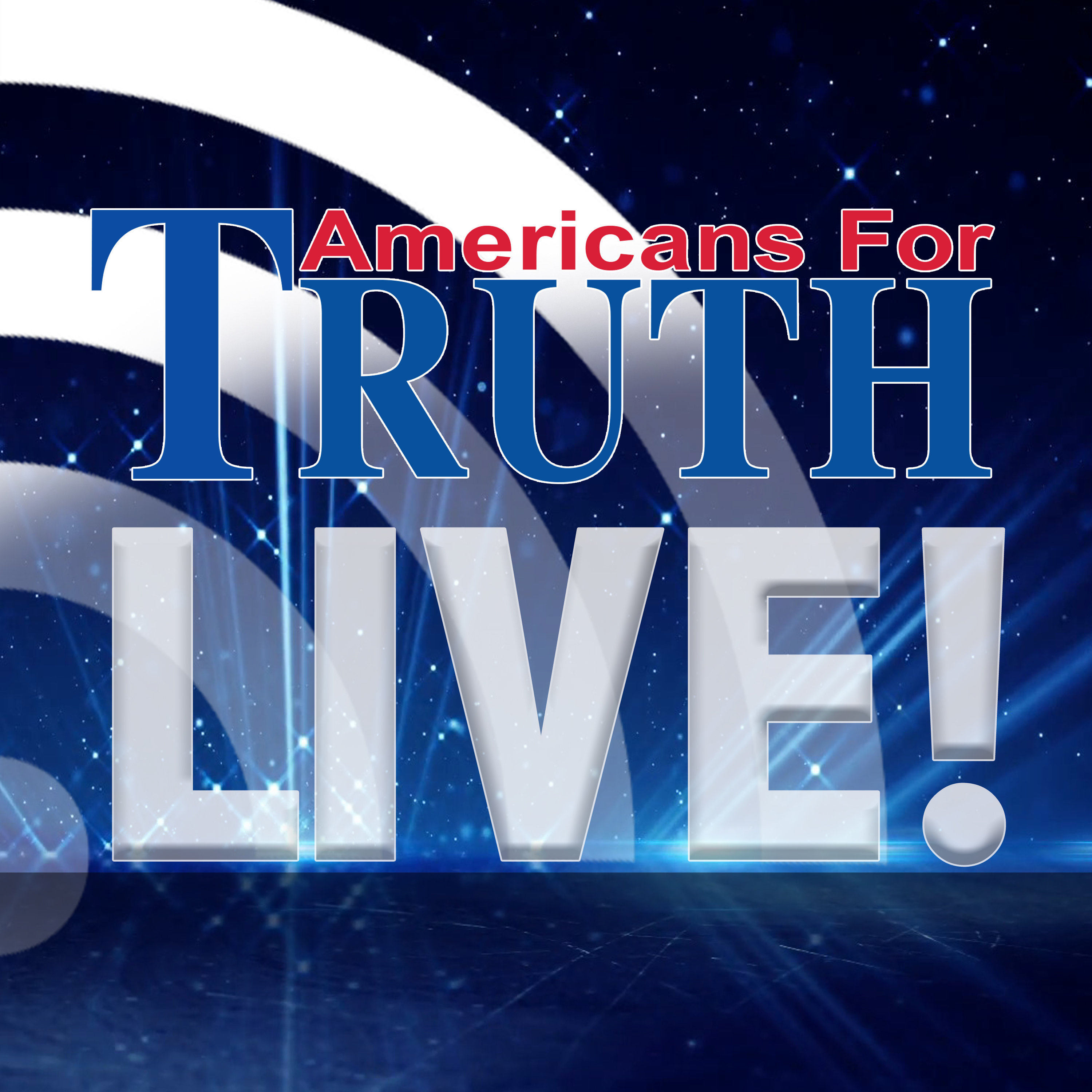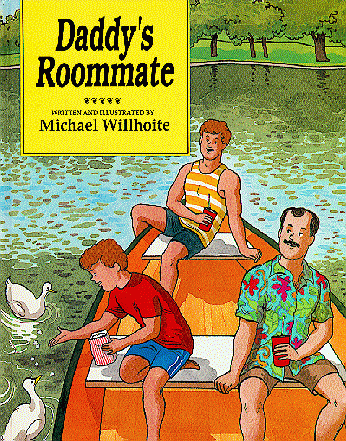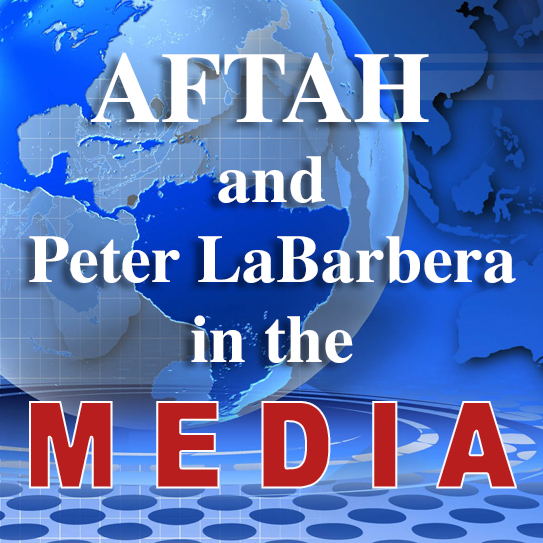
Dr. Kenneth Howell, Adjunct Associate Professor of Religion, University of Illinois, Urbana-Champaign, was fired after a liberal student complained about an e-mail he sent to his students explaining Natural Moral Law.
By Peter LaBarbera
The University of Illinois has fired Dr. Kenneth Howell, a Catholic adjunct religion professor who was doing his job of teaching a class on Catholicism — after a liberal student complained to the university about an e-mail Howell sent to his students explaining Natural Moral Law. (The professor’s instructive e-mail and the student’s complaint e-mail are reproduced below.)
TAKE ACTION: Contact Michael Hogan, the University of Illinois’s new president, and urge him to reinstate Prof. Howell immediately: phone: (217) 333-6400; Fax: (217) 333-5733. Tell President Hogan that Howell’s firing is a nationwide advertisement that the University of Illinois is bigoted toward and intolerant of people of faith — giving lie to U-I’s mission statement to be “inclusive” and to “treat each other with dignity and respect.” Board of Trustees: contact the U. of Illinois Bd. of Trustees at 217-333-1920 or write: UIBOT@uillinois.edu.]
The U. of Illinois’ “religion department’s website says Howell was recognized for excellent teaching in the spring and fall semesters of 2008 and 2009,” the Champaign News-Gazette reports.
Howell’s terminatioin draws attention to the emerging, cold reality of modern, politically correct America: in cosmopolitan areas and certainly in academia, you are more likely to be terminated, punished or persecuted on the job for opposing homosexuality than for “being gay.”
Here we are — on the verge, with our Democrat-controlled Congress, of creating federal employment “rights” based on homosexuality (and transgenderism), and people are being fired merely for expressing their sincere religious beliefs — which, in Howell’s case, was his job. Even as homosexual activists falsely claim that thousands of homosexuals face job losses because of “who they are,” the number of anti-Christian firings is piling up: remember the Allstate firing of Matt Barber? Crystal Dixon?
As you can see from below, Dr. Howell is a clear thinker who was doing what he was paid to do — teaching Catholic morality to his students. The complaint e-mail that got him terminated dismissses Howell’s e-mail as “absurd…It sickens me to know that hard-working Illinoisans are funding the salary of a man who does nothing but try to indoctrinate students and perpetuate stereotypes.”
If you want to know about the homo-fascist impulse that dominates so many institutions of “higher learning” (hah!) today, here are the key paragraphs from the News-Gazette story:
In a series of e-mail exchanges between [Robert McKim, head of the U-I religion department] and UI administrators about how to proceed regarding Howell’s teaching and his appointment as an adjunct professor, McKim states he will send a note to Howell’s students and others who were forwarded his e-mail to students, “disassociating our department, College, and university from the view expressed therein.”
In another e-mail, Ann Mester, associate dean for the College of Liberal Arts and Sciences, wrote that she believes “the e-mails sent by Dr. Howell violate university standards of inclusivity, which would then entitle us to have him discontinue his teaching arrangement with us.”
Inclusivity? What about U. of Illinois’ “inclusion” of traditional Catholic students and students who adhere to historic Judeo-Christian morality? ‘Diversity” has become a code-word for punishing those who dissent from liberal, pro-homosexuality groupthink. Please read the excellent e-letter below on Natural Moral Law by Prof. Howell. And take action to urge the University of Illinois to correct this injustice. — Peter LaBarbera, www.aftah.org
______________________________________________
Dr. Kenneth Howell’s Teaching E-mail to Students:
The following is the e-mail to students that U. of Illinois religion professor Ken Howell sent to his students, as reported by the Champaign News-Gazette:
From: Kenneth J. Howell
Date: Tue, May 4, 2010 at 9:45 PM
Subject: Utilitarianism and Sexuality (for those in 447 FYI)
Dear Students:
Since there is a question on the final exam about utilitarianism (see the review sheet), I thought I would help with an example. I realized after my lectures on moral theory that even though I talked about the substance of utilitarianism, I did not identify it as such and so you may not have been able to see it.
It turns out that our discussion of homosexuality brings up the issue of utilitarianism. In class, our discussion of the morality of homosexual acts was very incomplete because any moral issue about which people disagree ALWAYS raises a more fundamental issue about criteria. In other words, by what criteria should we judge whether a given act is right or wrong?
Before looking at the issue of criteria, however, we have to remind ourselves of the ever-present tendency in all of us to judge morality by emotion. The most frequent reason I hear people supporting same-sex marriage is that they know some gay couples or individuals. Empathy is a noble human quality but right or wrong does not depend on who is doing the action or on how I feel about those people, just as judging an action wrong should not depend on disliking someone. This might seem obvious to a right thinking person but I have encountered many well-educated people who do not (or cannot?) make the distinction between persons and acts when engaging moral reasoning. I encourage you to read the final essay editorial I sent earlier to reflect on this. In short, to judge an action wrong is not to condemn a person. A person and his/her acts can be distinguished for the purposes of morality.
So, then, by what criterion should we judge whether sexual acts are right or wrong? This is where utilitarianism comes in. Utilitarianism in the popular sense is fundamentally a moral theory that judges right or wrong by its practical outcomes. It is somewhat akin to a cost/benefit analysis. So, when a woman is deciding whether it’s right to have an abortion, the utilitarian says it’s right or wrong based on what the best outcome is. Similarly, a man who is trying to decide whether he should cheat on his wife, if he is a utilitarian, will weigh the various consequences. If the cheating side of the ledger is better, he will conclude that it’s okay to cheat. If the faithful side is better, he will refrain from cheating.
I think it’s fair to say that many, maybe most Americans employ some type of utilitarianism in their moral decision making. But there are at least two problems. One is that to judge the best outcome can be very subjective. What may be judged good for the pregnant woman may not be good for the baby. What may be judged good for the about-to-cheat-husband may not good for his wife or his children. This problem of subjectivity is inherent in utilitarianism for a second reason. Utilitarianism counsels that moral decisions should NOT be based on the inherent meaning of acts. Acts are only good or bad relative to outcomes. The natural law theory that I expounded in class assumes that human acts have an inherent meaning (remember my fist vs. extended hand of friendship example).
One of the most common applications of utilitarianism to sexual morality is the criterion of mutual consent. It is said that any sexual act is okay if the two or more people involved agree. Now no one can (or should) deny that for a sexual act to be moral there must be consent. Certainly, this is one reason why rape is morally wrong. But the question is whether this is enough.
If two men consent to engage in sexual acts, according to utilitarianism, such an act would be morally okay. But notice too that if a ten year old agrees to a sexual act with a 40 year old, such an act would also be moral if even it is illegal under the current law. Notice too that our concern is with morality, not law. So by the consent criterion, we would have to admit certain cases as moral which we presently would not approve of. The case of the 10 and 40 year olds might be excluded by adding a modification like “informed consent.” Then as long as both parties agree with sufficient knowledge, the act would be morally okay. A little reflection would show, I think, that “informed consent” might be more difficult to apply in practice than in theory. But another problem would be where to draw the line between moral and immoral acts using only informed consent. For example, if a dog consents to engage in a sexual act with its human master, such an act would also be moral according to the consent criterion. If this impresses you as far-fetched, the point is not whether it might occur but by what criterion we could say that it is wrong. I don’t think that it would be wrong according to the consent criterion.
But the more significant problem has to do with the fact that the consent criterion is not related in any way to the NATURE of the act itself. This is where Natural Moral Law (NML) objects. NML says that Morality must be a response to REALITY. In other words, sexual acts are only appropriate for people who are complementary, not the same. How do we know this? By looking at REALITY. Men and women are complementary in their anatomy, physiology, and psychology. Men and women are not interchangeable. So, a moral sexual act has to be between persons that are fitted for that act. Consent is important but there is more than consent needed.
One example applicable to homosexual acts illustrates the problem. To the best of my knowledge, in a sexual relationship between two men, one of them tends to act as the “woman” while the other acts as the “man.” In this scenario, homosexual men have been known to engage in certain types of actions for which their bodies are not fitted. I don’t want to be too graphic so I won’t go into details but a physician has told me that these acts are deleterious to the health of one or possibly both of the men. Yet, if the morality of the act is judged only by mutual consent, then there are clearly homosexual acts which are injurious to their health but which are consented to. Why are they injurious? Because they violate the meaning, structure, and (sometimes) health of the human body.
Now recall that I mentioned in class the importance of gaining wisdom from the past. One part of wisdom we gain from such knowledge is how people today came to think of their bodies. I won’t go into details here but a survey of the last few centuries reveals that we have gradually been separating our sexual natures (reality) from our moral decisions. Thus, people tend to think that we can use our bodies sexually in whatever ways we choose without regard to their actual structure and meaning. This is also what lies behind the idea of sex change operations. We can manipulate our bodies to be whatever we want them to be.
If what I just said is true, then this disassociation of morality and sexual reality did not begin with homosexuality. It began long ago. But it took a huge leap forward in the wide spread use of artificial contraceptives. What this use allowed was for people to disassociate procreation and children from sexual activity. So, for people who have grown up only in a time when there is no inherent connection between procreation and sex –- notice not natural but manipulated by humans –- it follows “logically” that sex can mean anything we want it to mean.
Natural Moral Theory says that if we are to have healthy sexual lives, we must return to a connection between procreation and sex. Why? Because that is what is REAL. It is based on human sexual anatomy and physiology. Human sexuality is inherently unitive and procreative. If we encourage sexual relations that violate this basic meaning, we will end up denying something essential about our humanity, about our feminine and masculine nature.
I know this doesn’t answer all the questions in many of your minds. All I ask as your teacher is that you approach these questions as a thinking adult. That implies questioning what you have heard around you. Unless you have done extensive research into homosexuality and are cognizant of the history of moral thought, you are not ready to make judgments about moral truth in this matter. All I encourage is to make informed decisions. As a final note, a perceptive reader will have noticed that none of what I have said here or in class depends upon religion. Catholics don’t arrive at their moral conclusions based on their religion. They do so based on a thorough understanding of natural reality.
Kenneth J. Howell Ph.D.
Director, St. John’s Institute of Catholic Thought
Adjunct Associate Professor of Religion, University of Illinois, Urbana-Champaign
_________________________________________________
U of I Student’s Complaint E-mail about Religion Prof Ken Howell:
The following is the e-mail complaint from student about U-I religion instructor Ken Howell, as reported by the News-Gazette:
Prof. McKim,
This past semester, a friend of mine took RLST 127: Introduction to Catholicism. Throughout the semester, he would consistently tell me how the teacher [Ken Howell], who I believe is a priest at the Newman Center, would preach (not teach) his ideology to the class. Many times, my friend (whom I wish to remain anonymous) said the instructor would say things that were inflammatory and downright insensitive to those who were not of the Catholic faith–it should be noted that my friend and I were both brought up Catholic. Anyways, my friend informed me that things got especially provocative when discussing homosexuality. He sent me the following e-mail, which I believe you will agree is downright absurd once you read it.
I am in no way a gay rights activist, but allowing this hate speech at a public university is entirely unacceptable. It sickens me to know that hard-working Illinoisans are funding the salary of a man who does nothing but try to indoctrinate students and perpetuate stereotypes. Once again, this is a public university and should thus have no religious affiliation. Teaching a student about the tenets of a religion is one thing. Declaring that homosexual acts violate the natural laws of man is another. The courses at this institution should be geared to contribute to the public discourse and promote independent thought; not limit one’s worldview and ostracize people of a certain sexual orientation.
I can only imagine how ashamed and uncomfortable a gay student would feel if he/she were to take this course. I am a heterosexual male and I found this completely appalling. Also, my friend also told me that the teacher allowed little room for any opposition to Catholic dogma. Once again, he is guilty of limiting the marketplace of ideas and acting out of accord with this institution’s mission and principles.
I have Cc’d Leslie Morrow, director of the LGBT Resource Center, on this e-mail as well as (name redacted), former features editor at the Daily Illini (I’m sure they’d like to hear about this), and Siobhan Somerville, a former teacher of mine and the founder of the queer studies major.
I didn’t go to Notre Dame for a reason,
(name redacted)
___________________________________________
Bio of Kenneth J. Howell, Ph.D. from the St. John’s Catholic Newman Center at the U. of Illinois
Kenneth J. Howell
Director & Senior Fellow, Institute of Catholic Thought
kenneth.howell@sjcnc.org
In addition to being the Director and a Senior Fellow of the Institute of Catholic Thought, Dr. Howell is also an Adjunct Associate Professor in the Program for the Study of Religion in the University of Illinois. Dr. Howell studied theology at Westminster Theological Seminary where he concentrated in biblical languages and systematic theology.
In 1978, he was ordained a Presbyterian minister and served parishes in Florida and Indiana. After completing his Ph.D. in linguistics at Indiana University, he taught Greek, Hebrew, and Latin at Reformed Theological Seminary in Jackson, Mississippi. His teaching duties involved theological research which led to his conversion to Catholicism in 1996. During this time, he obtained another Ph.D. in the history of Christianity and Science from the University of Lancaster (U.K).
Dr. Howell is the author of four books and numerous articles. God’s Two Books: Copernican Cosmology and Biblical Interpretation in Early Modern Science (University of Notre Dame Press, 2002), Mary of Nazareth: Sign and Instrument of Christian Unity (Queenship Press, 1998) is a scriptural study of Marian doctrine. Meeting Mary Our Mother in Faith (Catholic Answers Press, 2003), Questions College Students Ask…about God, Faith, and the Church (co-authored with Christine Pinheiro) (Champaign, IL: The St. John Institute of Catholic Thought, St. John’s Catholic Newman Center, 2006), The Eucharist for Beginners: Sacrament, Sacrifice, and Communion (San Diego: Catholic Answers, 2006).
















